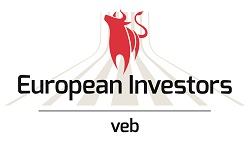15 February 2017 – On 14 December 2017, the Task force on Climate-related financial disclosures (TCFD), set up by Financial Stability Board (FSB), published an important report outlining its recommendations for disclosures on the financial impact on climate change. These recommendations aim to make such disclosures more decision-useful and consistent, an objective strongly support by European Investors. With the publication of the recommendations report, a consultation period started that ended on 13 February 2017.
Paris Accord
Following the adoption of the historical Paris Accord, awareness among investors about the potential impact of climate change on the viability of company’s business models is greater than ever before. Investors increasingly wish to obtain proper information from companies on the effects of climate-related issues on their strategy, and the ways in which a company’s leadership is managing the risks that climate change presents it with.
In its response to the consultation, the European Investors expressed its strong support for the recommendations that were published by the TCFD, but also highlighted some areas in which in her view further improvements can be made.
Core elements
Information on the impact of climate change on companies’ strategic and capital planning is paramount to investors. Companies need to ensure they invest their surplus cash flow in assets that can produce sufficient revenues over time. This is necessary for long-term (shareholder) value creation. Also, a proper asset impairment policy, in light of the painful transition that some companies might need to go through, is an absolute necessity.
Furthermore, it is essential that climate change risks are managed with the same thoroughness as other more traditional risks companies face. To this end, adequate governance arrangements, based on the well-known ‘three lines of defense’ model, need to be in place. European Investors foresees a particularly important role for audit and risk committees. These committees should oversee whether management take sufficient account of climate change and related risks and opportunities in their decisions over the short, medium and longer term.
Scenario-analyses
Analysis of the effects of climate change over the long term involve many unknown variables, which makes it prudent to consider multiple scenario’s. European Investors therefore supports the emphasis in the TCFD report on scenario analysis.
However, more guidance is needed. Investors need to be able to make comparisons among companies with the same sector. This requires a certain level of standardisation in the way companies select scenario’s and the time horizons over which they predict climate-related effects on their company under the different scenario’s. Also, companies might require more guidance on how scenario-analyses can be used as a basis for decision-making.
Assurance
European Investors notes in its response that the recommendations report does not deal with assurance issues. While investors will understand that forward looking information is based on assumptions that cannot be objectively verified, European Investors thinks investors need to obtain a certain level of assurance. An independent auditor should assess the reasonableness of the assumptions that have been made by management. If he or she has any doubts, this should be noted in the auditor’s audit report.
Also, as European Investors argues in its response, the independent auditor should check climate-related financial disclosures for material inaccuracies and inconsistencies.
Next steps
The Task Force will analyse the responses it received to its consultation and, where necessary, adjust the recommendations to increase their effectiveness.
Overall, European Investors believes the information recommended by the TCFD will be useful to investors. However, key to the framework’s success will be the extent to which it will be widely adopted across sectors and across jurisdictions. Disclosures on climate change involve sensitivities that might make organisations reluctant to fully implement the recommendations if they have no assurance that their peers will do the same.
Because of this, and for the simple reason that improper accounting is detrimental to the interests of investors and the general trust in capital markets, European Investors supports the enactment of more binding measures, in close collaboration with standard setting bodies.
Engagement
In the absence of a mandatory framework, investors and representative associations can play an important role in the wider adoption of the framework. Investors have to use their shareholder rights and influence on listed companies to encourage them to report in accordance with the recommendations made by the Task Force.
Climate change is also one of the key areas that European Investors identified in the run up to the 2017 AGM season. Through its presence at AGMs and one-on-ones, European Investors will start a dialogue with these companies on improvements that could be made in their approach towards climate related risks and opportunities and in the quality and quantity of the information they provide to the market on their financial implications.
